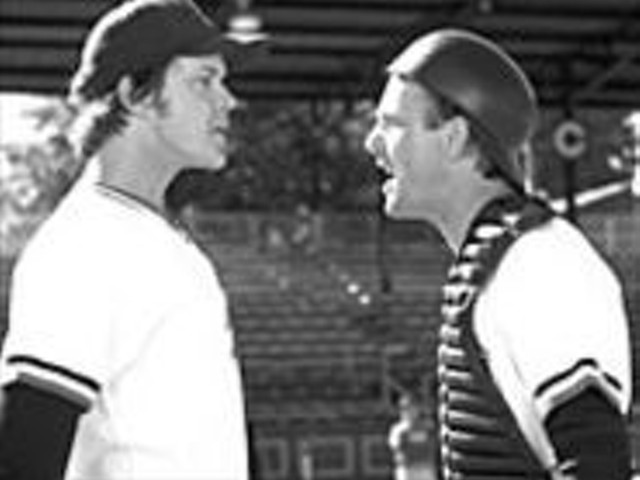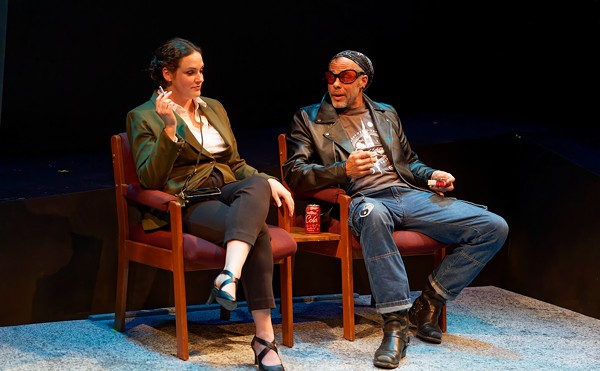Ostensibly Michael Frayn's Tony Award-winning Copenhagen is concerned with a mysterious meeting that took place in that city in September 1941. Even as Hitler was devouring Europe and Scandinavia, the distinguished German physicist Werner Heisenberg traveled to occupied Denmark for a strained, awkward reunion with Niels Bohr and his wife, Margrethe. At the time, Bohr was not only the world's most famous atomic physicist but a paternal figure to Heisenberg. Twenty years earlier, the elder Bohr and his young protege had revolutionized atomic physics; now, war had made these two Nobel Prize winners wary opponents.
What did they discuss that September night? Did Heisenberg confide that he was developing an atomic bomb for Hitler? Did he ask Bohr to join him in his research? Or did he express revulsion for Hitler and promise to try sabotaging the German effort from the inside?
Much conjecture has been written about that meeting, but the fact remains that no one knows what passed between the two physicists -- including playwright Frayn. Although Copenhagen hazards some conjecture of its own, Frayn is pursuing something more ambitious than "what happened." He uses the reunion as a point of departure, a framework for a kangaroo court in which to debate, and even try to reconcile, the moral irreconcilables faced by men of science in times of war.
Because its three characters are already dead when the play begins, Copenhagen prowls through time with the same ease with which the actors prowl the stage. Now it is 1941, now 1924, now 1945. But the locus is always the bomb. In this traveling production the eccentric, avuncular Bohr (William Cain) is unwavering in his contempt for Hitler. By contrast, Heisenberg (Sean Arbuckle) is intriguingly ambivalent. Initially he is all assurance and precision. But when confronted with the ethical implications of exploiting atomic energy, he is racked by conscience. As Heisenberg seeks to shed light on the darkness lurking in his own soul, Arbuckle gives a wrenching performance.
Margrethe (Tanny McDonald) is a fiercely protective wife. But because she is not a physicist, one senses that her primary function is to serve as an onstage surrogate for the audience. At one point Bohr declares, "We're going to make the whole thing clear to Margrethe." If she can understand what's going on, so can we. And indeed, at the outset, this conundrum of a play is surprisingly accessible. In February, I saw Copenhagen performed in Iowa City by the same cast that will appear at the Edison Theatre on Sunday and Monday. During Act 1, the Iowa audience was so enthralled by the premise, so spellbound by the exposition, that people were literally on the edges of their seats.
Alas, by play's end the physics are a little more than most lay viewers will be able to absorb. But always, at the center of these passionate, tangled debates is the revelatory realization that even if we viewers don't know what Bohr and Heisenberg are talking about, they do -- and did. Think of it: In September 1941, a full two months before the United States even entered World War II, when the very notion of an atomic bomb was beyond the imagining of almost every other living being, already these two visionaries were looking beyond the war to a world that would escalate out of control -- because of them.
Frayn is a visionary, too, or at least an alchemist. He has taken a handful of confused, contradictory facts and transformed them into a provocative drama that ultimately eschews facts to stare instead into "that final core of uncertainty at the heart of things." In this world of ours, daily accused of being dumbed-down, intellectual cornucopias don't come along very often. Miss this one at your peril.





